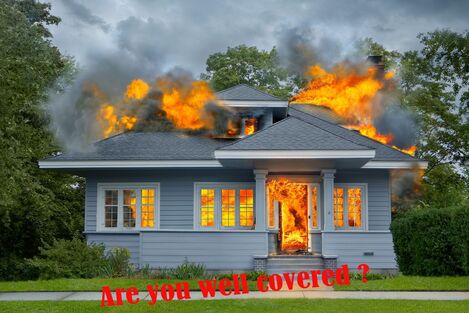
Landlord Insurance
This is similar to Contents Insurance – it covers you for things like a burst hot water system or in case the tenant damages the property or leaves the property and doesn’t pay rent. When taking out this for your property, it is important to ensure you are well covered for all situations.
Ordinary owner-occupier insurance is generally insufficient to cover death and injury if the property is being rented, either through a standard lease or via a share accommodation platform like Airbnb. Most home and contents policies stipulate that there is no legal liability cover if the premises are being used to generate an income — and that includes rent.
Policyholders intending to use the property for Airbnb can ask if their insurer will extend cover, but as most insurers consider this “high risk”, there’s a good chance they’ll be refused.
Typical landlord insurance will only insure stays longer than 90 days and usually requires copies of residential tenancy agreements, which means it won’t cover short-term stays. Those with standard (fixed-term lease) landlord cover should confirm with their insurer if it is possible to switch to short-term cover if they go down the Airbnb route — it may not be, as not all landlord insurers offer cover for short-stay leases, and even if they do, they may specifically exclude Airbnb.
BTW: If your landlord thinks a bit of “secret squirrel” is best and they suggest keeping their plans to rent the property via Airbnb quiet from their insurer, they should think again. It is a requirement under the Insurance Contracts Act 1984 (Cth) for policyholders to notify their insurer if there is any change in circumstances, such as a decision to offer their premises for short-term rental. Failure to notify an insurer of a change in living conditions could be considered a breach of the contract and may void the policy.
What about host protection?
Relying on Airbnb’s Host Protection Insurance is fraught. Although it offers up to US$1 million in cover “in the event of a third-party claim of bodily injury or property damage” during an Airbnb stay, it generally only applies when the host or landlord has been at fault or been negligent in the circumstances of the injury.
In this specific case, there would be a need to prove that the owner of the property was aware, or should have been aware, that the swing posed a risk to children who used it, and in light of that knowledge, that they had failed to repair and maintain the swing or remove it. If it is determined that no one was at fault, then there would be no compensation payable.
If, however, it could be proved that the swing was clearly unsafe and the property owner should have been aware it posed a risk, but still failed to repair or remove it, then the children’s family could have grounds for a claim against the host.
So how can my landlord protect their legal liability?
The best way for a host/landlord to protect their legal liability when they rent their property via Airbnb is to have the right landlord insurance. Your landlords need a specialist policy that covers the risks associated with short-term leasing — including legal liability — and one which specifically covers renting via share accommodation platforms like Airbnb.
Hosts/landlords and their agents should reduce the risk of being responsible for damage to property or for compensation for an injured guest by making sure they take steps to avoid any liability in the first place. A key to this is ensuring the property is safe and well maintained.
Despite the best intentions, sometimes things don’t go according to plan and the host/landlord could possibly face a compensation claim from a guest. Having a guest injured or worse on the property is bad enough; finding out that you could be legally liable but not insured correctly could be a financial disaster.
So, it pays to make sure landlords hitching their wagon to the Airbnb star have the right short-term insurance in place, and that your Professional Indemnity cover is up to date, too.
Building Insurance
This covers the construction of the property and there are policies that might exclude certain events like flood, so it`s important to ensure you are well covered.
